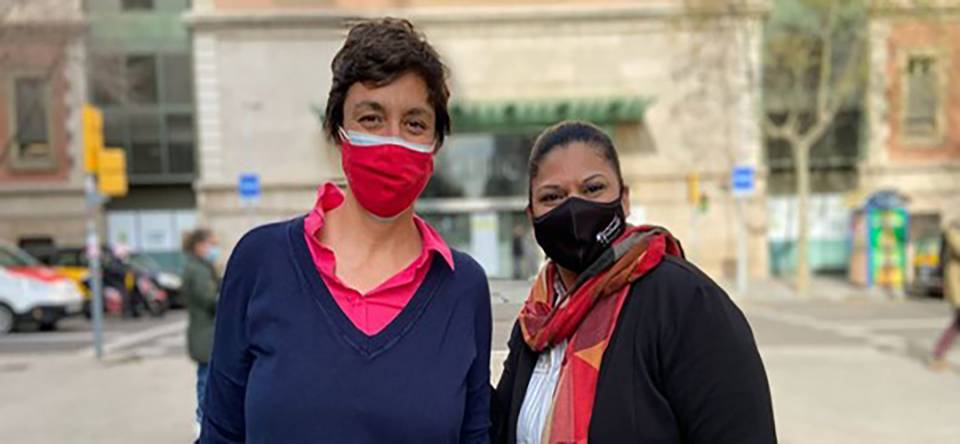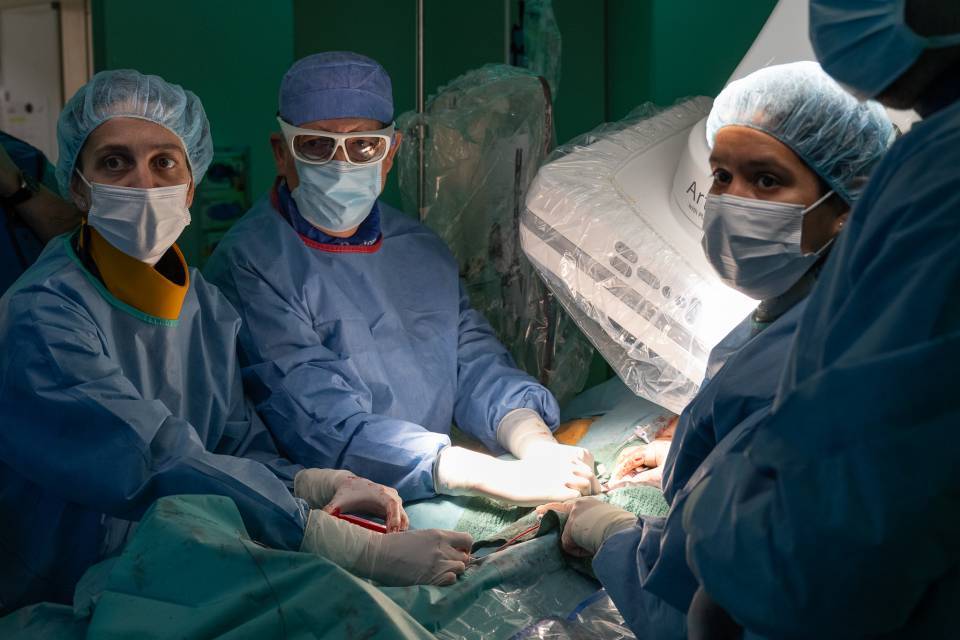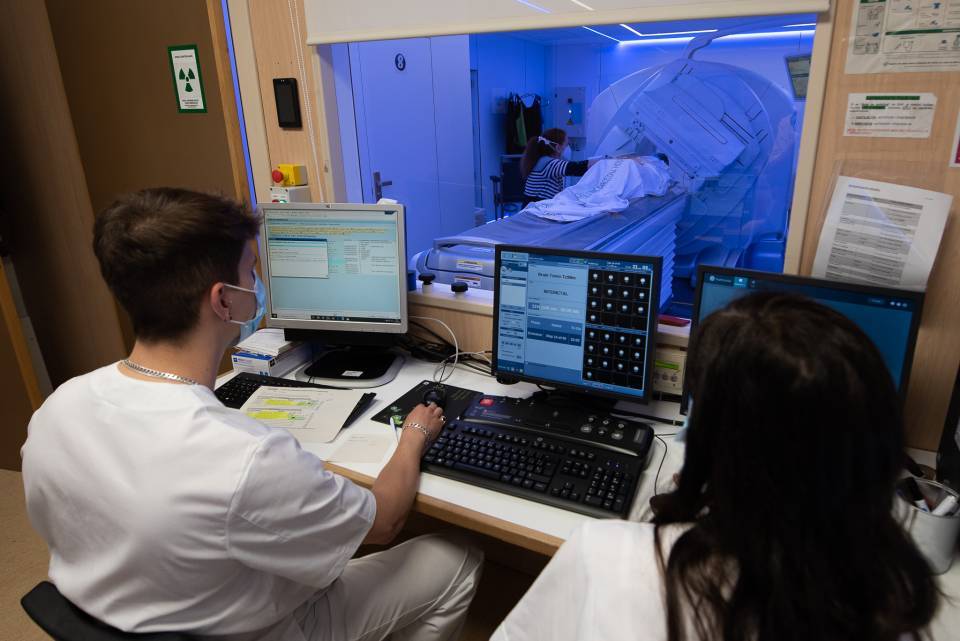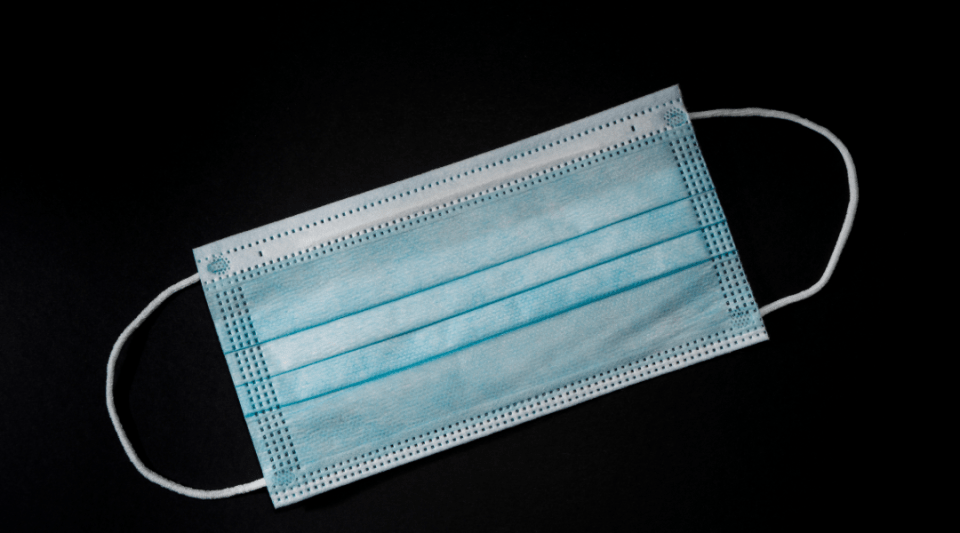Sant Adrià de Besòs, (December 27th, 2021).- “We recover lives, we avoid social exclusion” is an innovative project arising from the collaboration between a public hospital, the Hospital Clínic de Barcelona, and a third sector entity, the Fundació Formació i Treball with the aim of highlighting the role played by carers responsible for providing home care to people in the early stages of a bone marrow transplant (BMT). Formació i Treball is in charge of selecting carers for its APROP work pool, made up of people at risk of social exclusion, and the team of professionals of the Home Care Unit (UAD) at the Hospital Clínic Haematology Service is in charge of training them to carry out their work at the patients' homes.
The care they take in carrying out their work with patients is underlined by the fact that there have been no SARS-CoV-2 or COVID-19 infections since the start of the project in July 2020, despite the constant waves and outbreaks of the virus in different municipalities. Bearing in mind that 81% of the carers live in shared flats with their family or other people, this demonstrates the responsibility and efficiency of the people who make up the service.
Daniel forms part of this group of carers in the Hospital Clínic project. A nursing assistant by profession, he has been linked to the Fundació Formació i Treball for 3 years. He has taken several training courses and received career guidance to allow him to join the ordinary job market. He is very positive about being part of this job pool. “It is very gratifying, it makes you feel great and it's enriching to see that you can really help people who are going through a hard time. When you finish, you get a really good feeling and they thank you for it”, says Daniel.
Olga arrived seven years ago from Honduras. She had always wanted to work in the healthcare field and when she arrived in Barcelona she worked caring for the elderly in their homes, in day centres and in old people’s homes. Thanks to the Fundació Formació i Treball she was able to obtain a professional nursing assistant certificate and form part of the pool of carers in the Hospital Clínic project. “I think it’s a very good project. I have cared for four patients and it is a lovely experience. You form a very strong bond with them, I have made friends with each patient”, she explains.
“We recover lives, we avoid social exclusion” is a project that goes far beyond the healthcare aspect, and tells us human stories about people who form a bond. Daniel highlights the feeling of complicity that is generated between carer and patient. “In the first few hours, there is a feeling of mistrust, but when they get to know one another, everything changes. They wait for us and you become part of them”, says the carer. Olga meanwhile stresses the fact that the patients speak to her a lot and that listening to them and understanding them is just as important as the daily care they have to give. “You create such a close bond with them that you feel something in your heart when they are discharged. Afterwards, they have phoned me and told me how they were getting on”, comments Olga. Daniel is still in touch with one patient he looked after last spring: “we exchanged telephone numbers and he phoned me a few weeks ago to arrange to meet up. When we met, he didn’t stop thanking me. ”
During the period 2020-21, 11 of the 15 people participating in the project managed to find a job in the care sector. Therefore, their participation has allowed 73% of the carers to join the job market after taking part in this project. Olga stresses the importance of vocation in this profession, which is often under-recognized. She explains that in the future she would like to be a nursing assistant and work in a hospital: “this experience will help me open more doors and broaden the scope in my profession. Adding that I have worked with the Hospital Clínic to my curriculum helps me and puts me in a better position”, she comments.
Excellent care in times of pandemic
In people who are in the early stages of a BMT there is a very clear and temporary decline in the immune system, which makes them especially vulnerable, and particularly in a pandemic situation like the current one. Despite this, the Hospital Clínic has a great deal of experience in the home management of this stage of transplantation, as since 2000 it has treated over 500 BMT recipients at home with excellent results in terms of health. One important point in this context is that home BMT requires us to have carers, usually relatives, who “effectively accompany” the patients for an average of two consecutive weeks. So, until the “We recover lives, we avoid social exclusion” project was launched, the patients who did not have carers 24 hours a day were admitted to hospital for the BMT.
The carers’ responsibility has been possible in situations in that are not always easy and require a high level of care and alertness to the daily tasks that are performed with the patients. Daniel and Olga explain that at their house they are very aware of the preventive measures and they are all vaccinated. Over 76% of the carers that live in shared flats do so in support bubbles of 3 to 5 people. The most common routines include daily hygiene and changes of clothes and shoes, frequent changes of gloves, masks and sheets both at the patient’s home and the carer's. The continuous use of hydroalcoholic gel and hand soap, and maintaining social distancing with family members to protect the patients.
We can all be vulnerable. With this project, the protagonists experience a situation of change in their vulnerability. People at risk of social exclusion caring for people suffering from a disease that makes them especially vulnerable. We can all experience situations of vulnerability throughout our lives and we all deserve the same dignity, regardless of our social status, gender, age, ethnicity or origin.




